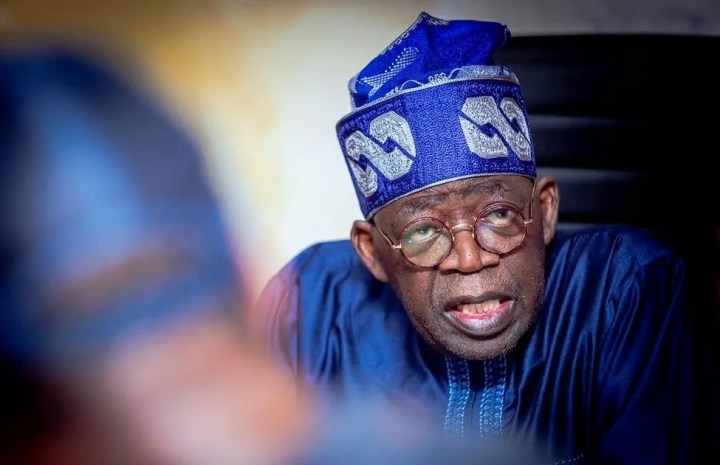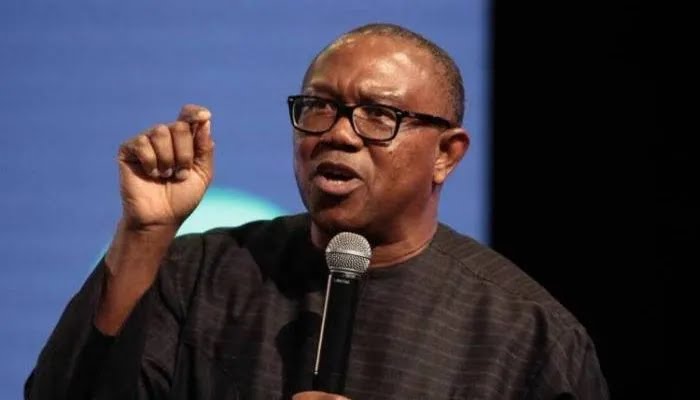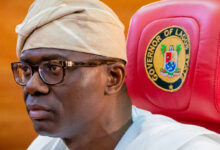Mr President, please save our judiciary, our democracy, our country, by Hassan Gimba

“A corrupt judge is more harmful to the society than a man who runs amok with a dagger in a crowded street. While the man with the dagger can be restrained physically, a corrupt judge deliberately destroys the foundation of society.”
– Justice Samson Uwaifo, a retired Justice of the Supreme Court.
About two weeks ago, Mr Olumide Akpata, a former president of the Nigerian Bar Association (NBA), at the International Bar Association (IBA) conference in Paris, France, lamented that only by sheer luck will the Nigerian judiciary produce a good judge and that the country is under “judiciary capture.”
He said as president of the NBA between 2021 and 2022 when he was a statutory member of the National Judicial Council (NJC), the body saddled with the responsibilities of recruiting and disciplining erring judges in Nigeria, he found out that Nigeria’s political class was desperate to pocket the judiciary.
“It is deliberate, and it is intentional. And it is achieving results for them,” Akpata said, adding that such a move has very insidious consequences for the rule of law in Nigeria.
Speaking in the same vein, Chidi Odinkalu, a law professor and former chairman of the National Human Rights Commission (NHRC), on his X handle also wondered why heads of courts like the Chief Justice of Nigeria, Olukayode Ariwoola, and the presidents of the Court of Appeal and National Industrial Court of Nigeria, Monica Dongban-Mensem and Benedict Kanyip, respectively, would appoint their children or spouses as judges. He also described the situation as “judicial capture.” He even said one of the three justices who heard the appeal concerning the Kano governorship petition is a nephew of the Chief Justice of Nigeria.
Odinkalu had spoken in a television interview about how merit is sacrificed by the judiciary’s top hierarchy in favor of nominating their wards, wives, and mistresses as judges.
Mr Akpata, who disclosed that “some chief judges kneel before the governors” to beg for funds, said judicial unions in Nigeria have been demanding financial independence but to no avail. Judges’ salaries are abysmally poor, a situation, he said, that breeds corruption. He said this is why some judges are living above their legitimate income by sending their children to Ivy League institutions like Cambridge, Yale, and Harvard.
And he said, “When you know a man (judge) that knows the law but his judgment flies in the face of what the law should be, you know that there is something else motivating him or her.”
According to the then chairman of the Independent Corrupt Practices and Other Related Offences Commission (ICPC), “the justice sector had the highest level of corruption with a score of 63. Stupendously high amounts of money offered as bribes to judges by lawyers handling high electoral and other political cases heightened the level of corruption in the justice sector.”
He put the electorally related bribe money “demanded, offered and paid between 2018 and 2020 at ₦9,457,650,000.00 (₦9.45 billion).
Just last week, reacting to the Court of Appeal judgement regarding the Kano governorship election petition, Dr Kingsley Moghalu, former deputy governor of the Central Bank of Nigeria, (CBN), writing also on his verified X handle, warned that Nigeria’s judicial and electoral systems were collapsing.
He wrote, “Nigeria’s judicial and electoral systems are collapsing. This has ominous implications for our aspirations for democracy. Often, those who benefit from these systemic failures are intoxicated by their advantage. But history tells us that, longer term, the prognosis isn’t pretty.”
Many people are keying into Professor Odinkalu’s opinion that the judiciary, for reasons that may not entirely be noble, is rendering the people’s votes waste as it crowns people into office. He said such started when Rotimi Amaechi, who was never on any ballot, was declared governor of Rivers State in 2007 by the Supreme Court and gave its reasons a month later.
Right or wrong, the public has scant confidence in the judiciary and that is a dangerous threat to Nigeria’s peace and stability.
Mr Akpata puts it succinctly: “Sadly, we all know, or we should know, that a country is only as stable, just and fair as its judiciary, and once the citizenry loses faith in it (judiciary), then rebellion against the law and constituted authority becomes the fashion and chaos sets in. The trajectory, sadly, is inauspicious.”
In a recent interview, Prof Itsejuwa Esanjumi Sagay, SAN, speaking on the Supreme Court, said: “Without any question, the Supreme Court decision endorsing former Senate President Ahmad Lawan as the All Progressive Congress’ candidate for Yobe North senatorial district together with its separate ruling in another case endorsing Godswill Akpabio’s candidature for Akwa Ibom North Central senatorial position created a great embarrassment to senior lawyers who have an idea of the law. It is a great embarrassment. You could see Okorocha making fun of Lawan in the Senate, saying he should tell us the trick of how he managed to make it back to the Senate.
“You know, it is an open secret about how they got there. Certainly, it was not a legitimate exercise that took them there. Everything that took them there was contrary to the existing law – the 2022 Electoral Act. No doubt about it, the magic by which they got there would remain a mystery for a long time. And this has not done anything good to the image of the Supreme Court.”
Then throw in the magic of how Senator Hope Uzodinma, who INEC said came fourth in the ballot, became the governor of Imo State in 2019 (many still derisively refer to him as the Supreme Court governor!) and the current confusion in the Kano governorship appeal court ruling where what was read out in open court as judgment is contrary to what is contained in the Certified True Copy (CTC) of the judgment – signed and stamped – and the picture is something else – the exact term used by retiring Supreme Court Justice Mohammed Dattijo in his valedictory speech recently in which he gave a broadside to the institution he served for 47 years.
But there was a time when we could say that the Nigerian Supreme Court ranked among the best in the world. That was when we had jurists like Justice Kayode Esho, Justice Chukwudifu Akunne Oputa, Justice Augustine Nnamani, and Justice Mohammad Bello. But politics has since come with its baggage and it has started dancing in the marketplace.
Even though some people have given their kobo’s worth of suggestions regarding how the judiciary can be reformed, the buck stops at the desk of President Bola Ahmed Tinubu.
He needs to do something urgently about the judiciary so that the average Nigerian will believe that he can get a sanctuary there. After all, democracy and nations are just as strong as their judiciary is just and fair.
It is high time the Nigerian judiciary sped up its justice delivery process. We recently saw how courts in America can adjudicate a matter and deliver judgment within 48 hours. There, they believe that justice delayed is one denied.
Then perhaps we should limit the type of cases that end up at the Supreme Court. A situation where any case can end up there makes it hard for the speedy delivery of justice.
We should also look at the remuneration of judges. They need to have decent salaries and allowances and conditions of service that will make them very comfortable and that would make them able to resist temptations and outside pressure.
Perhaps appointment into the highest court and the appellate courts should not be left only to those who now form the recruitment base. This tradition of appointing only those from the bench may have outlived its sell-by date; let’s have the best brains in there. Who said someone like Femi Falana will not make a good Chief Justice of the Federation? Sometimes you need an outsider to shake up a poor system.
Maybe our legal education should also be overhauled, the syllabus redrawn and the law school training deepened. What we have now seems to have outlived its usefulness. Otherwise, can you imagine a situation where about fifty senior advocates of Nigeria (SANs) could not score a reasonable point in a court of law? We saw how the lawyers of Atiku Abubakar, Peter Obi, and Allied Peoples Movement (APM) could not differentiate between a good case and a bad one, eventually failing to convince the judges at both the election petition tribunal and the Supreme Court on even a single point of relevance. Unless, of course, there is something else.
*Gimba, the Publisher and Editor-in-Chief of Neptune Prime writes from Abuja








